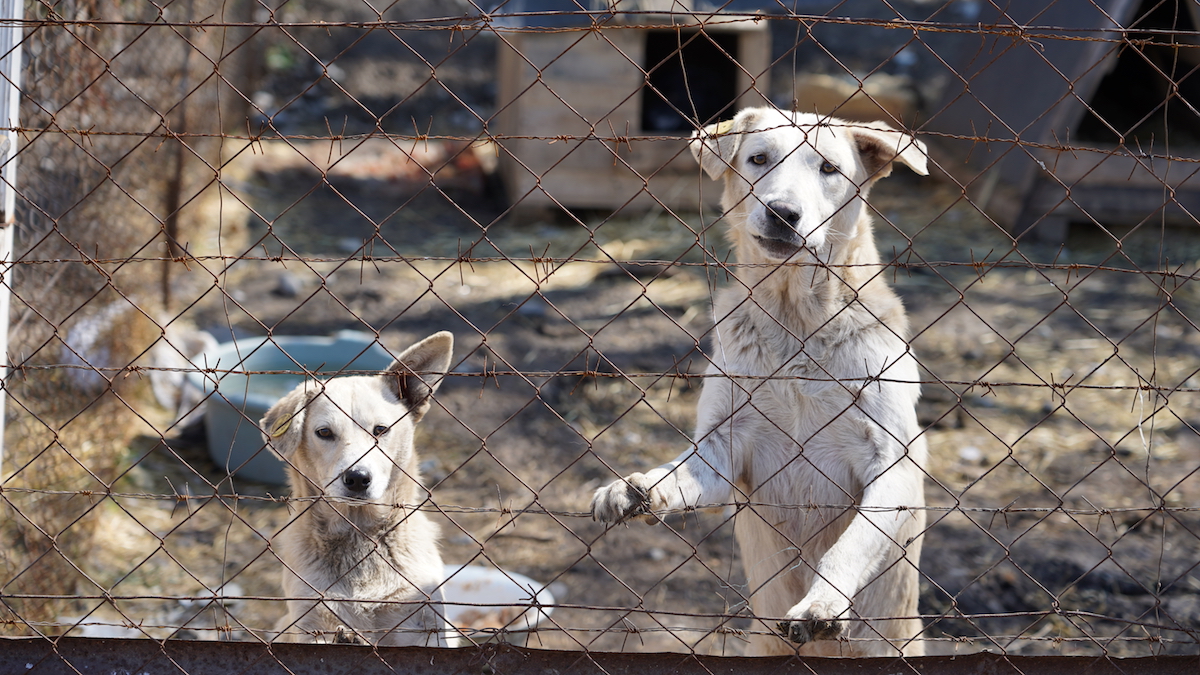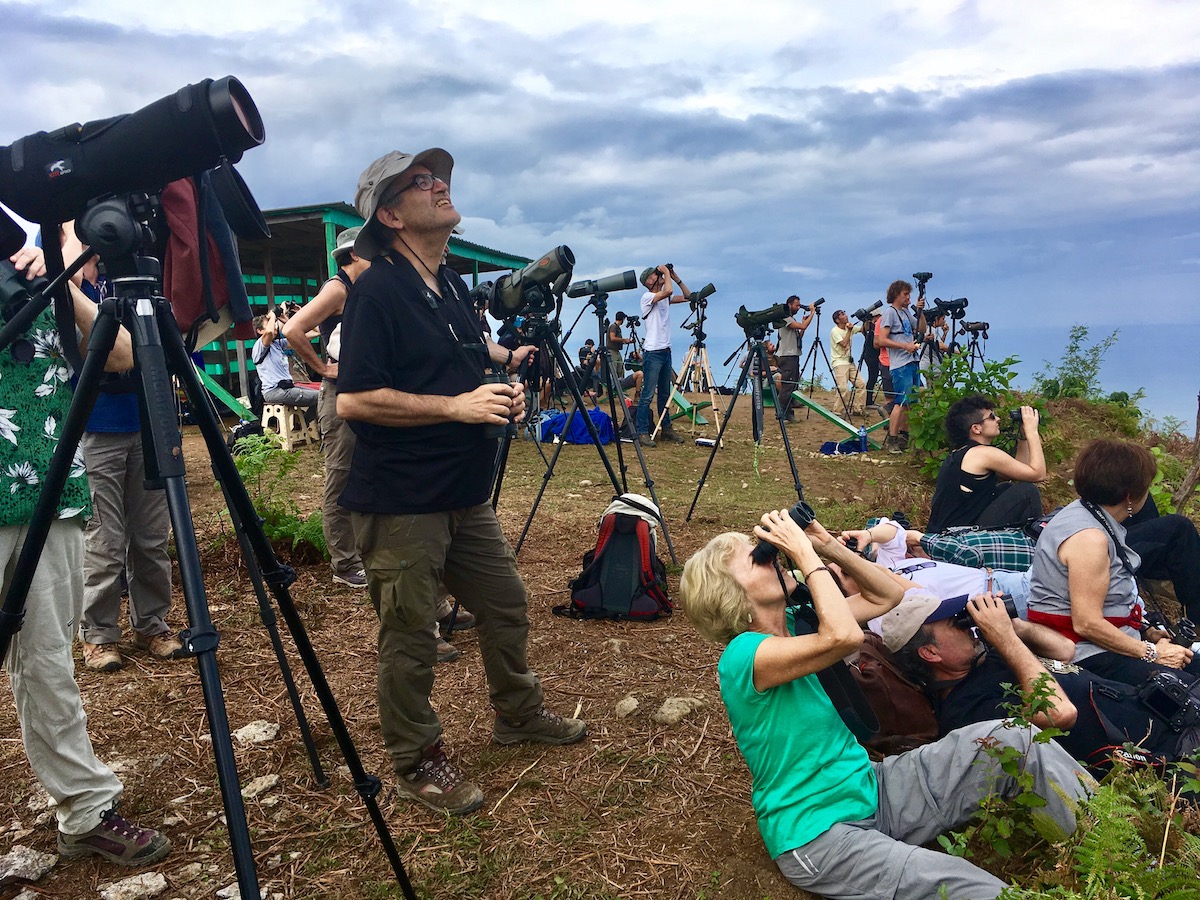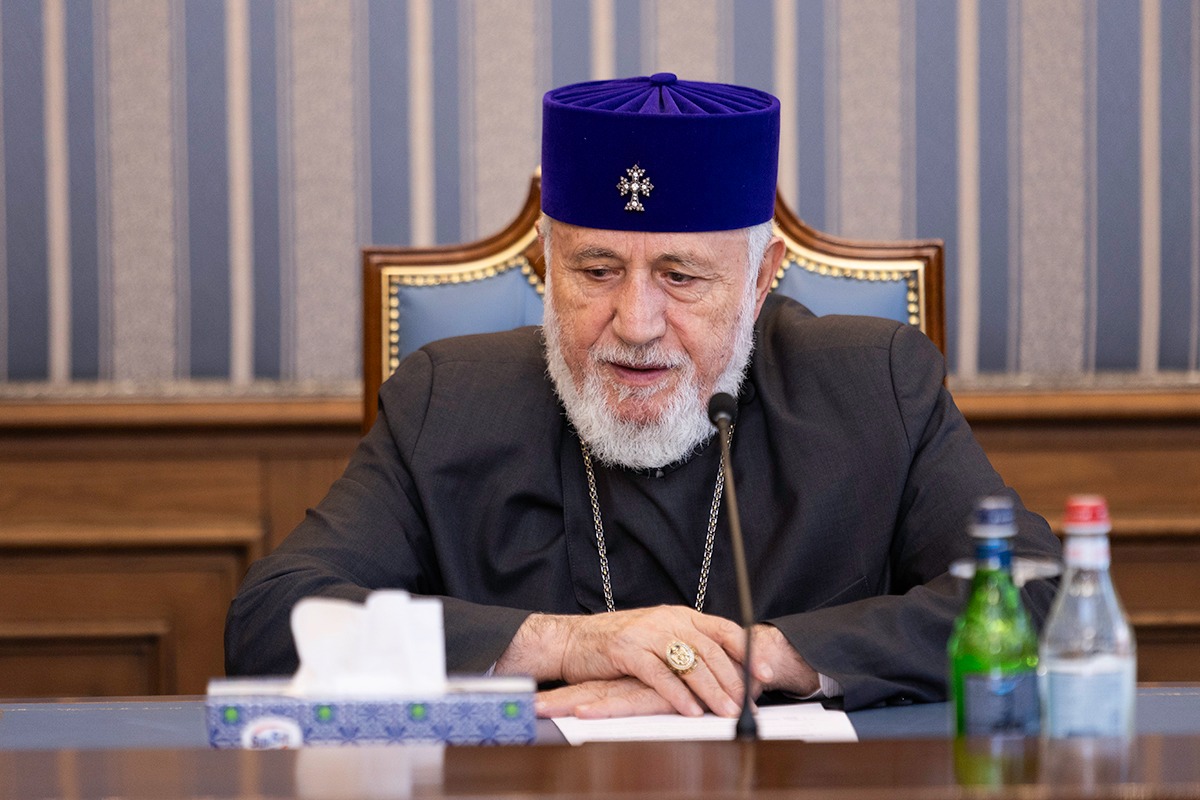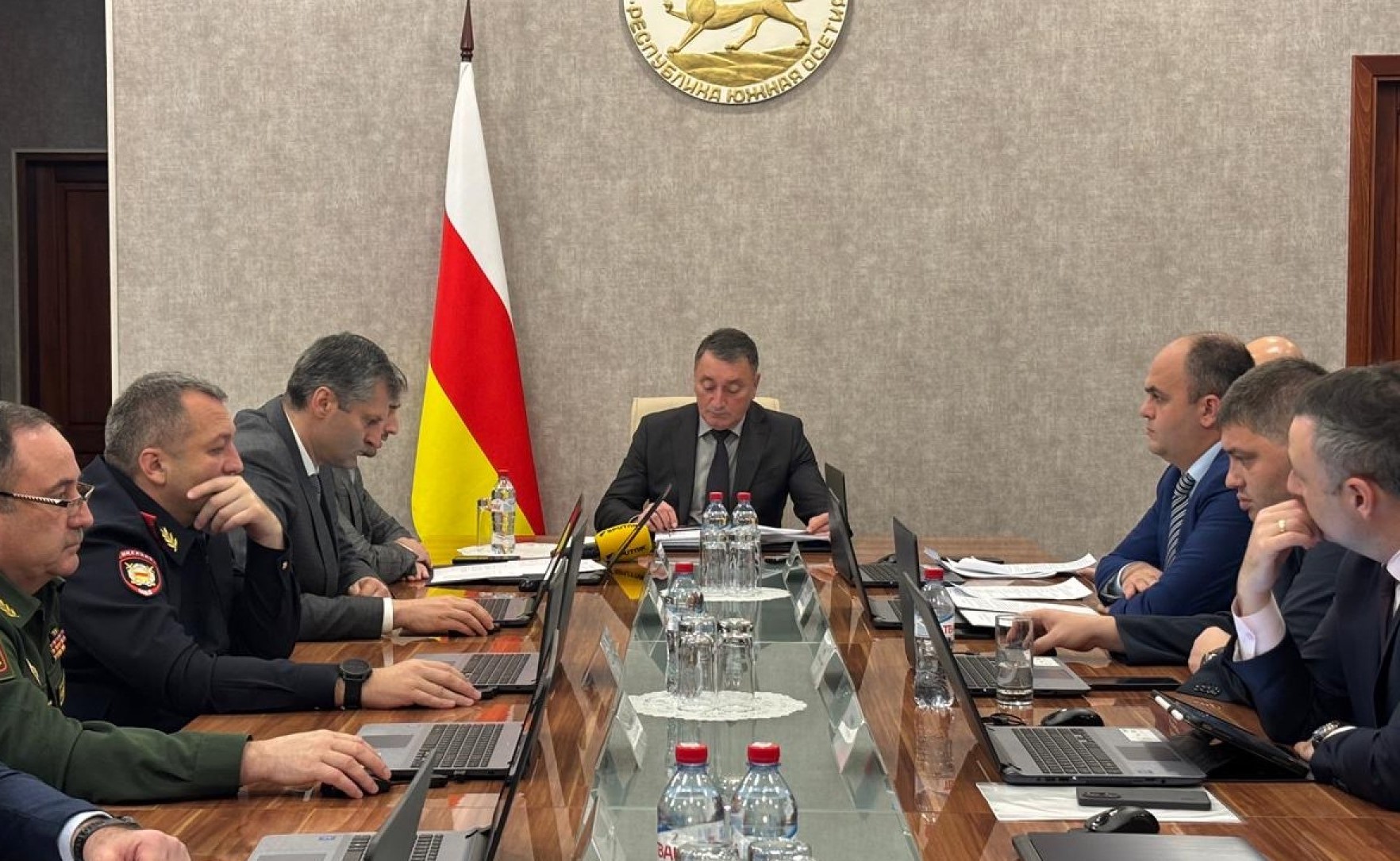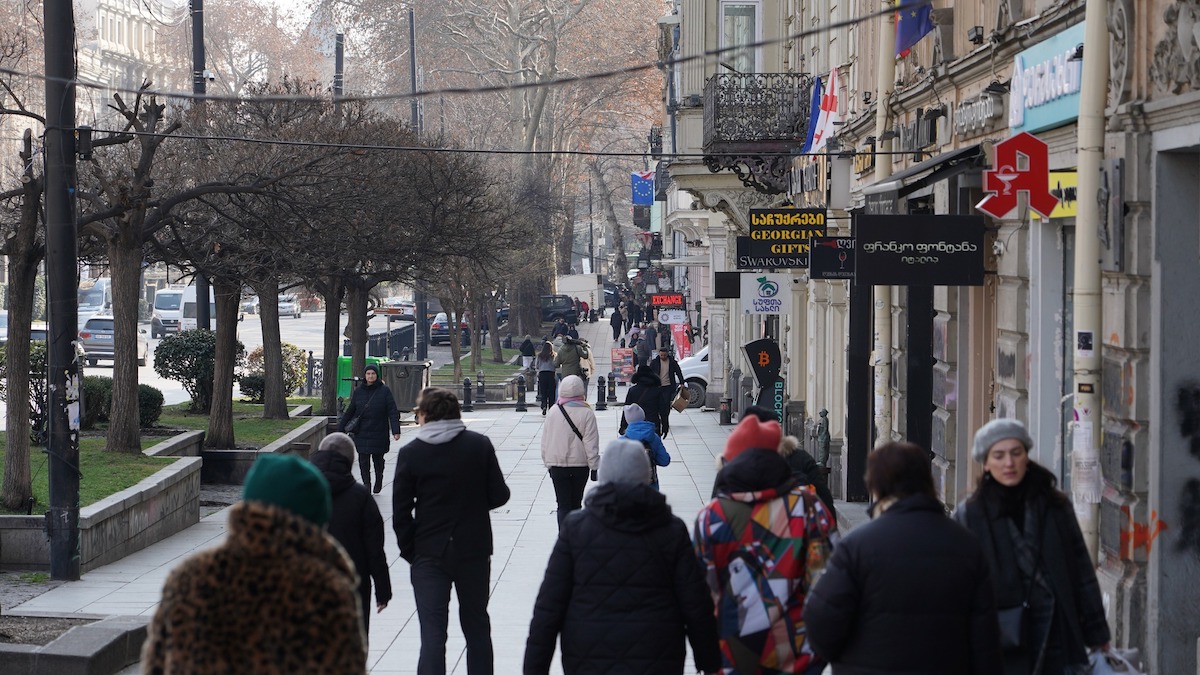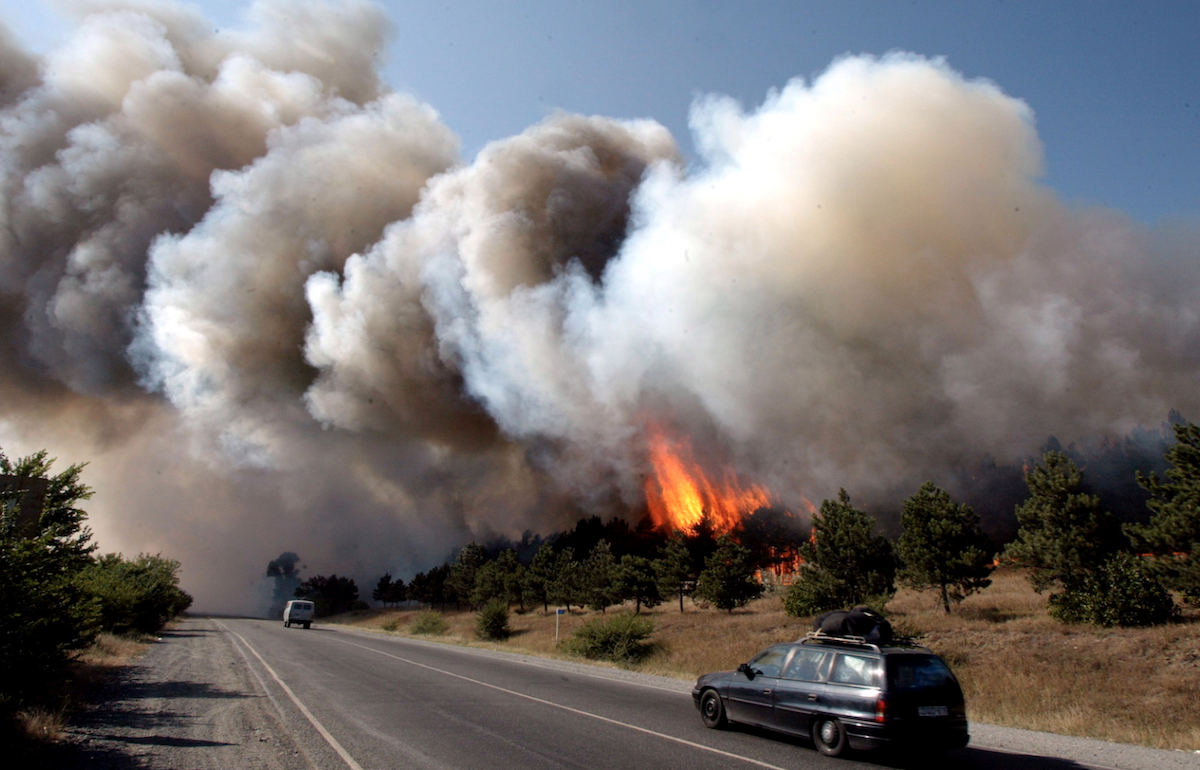Will a new law solve the problem of stray dogs in Georgia?
Stray dogs in Georgia
The Georgian Parliament is working on a new bill that it hopes will solve the problem of stray dogs.
Dato Urushadze is a courier from Tbilisi. When he works at night with orders from various cafes or restaurants, street dogs follow him.
“At night they go in packs. Couriers know streets that are dangerous to walk on. They will bark at you. And if a helmet is also worn on the head, then even more so. They will follow you. It’s lucky if they don’t rip off a bag of food. ”
Dato says that most of all the couriers are afraid of the dogs living on Agladze street in the capital.
“Every courier knows that it is better not to go there at night.”
There are also many dogs in the stadium where Dato works.
“Some customers already know us. We are used to it and know how to get to them. And we try to help others. Recently, a woman ran away from a pack of dogs. I mainly work in the city center. The suburbs are probably more of a problem. I imagine what is happening in the Digomi [bedroom district of Tbilisi] area.”
On April 24, 2023, in Martvili [a village near Tbilisi], a street dog bit 22 people. A few days later, the dog fell ill — the animal was diagnosed with rabies.
A month earlier, there was a similar case in Ambrolauri [Racha-Lechkhumi region], where a dog was also diagnosed with rabies.
Tamuna Kvinikadze has a country house not far from Tbilisi in Mukhatskaro. She says that in the summer it is scary to go outside the gate:
“Dogs run through the streets in packs. They are especially aggressive, actually wild. There are mostly country houses on our street, people come only in the summer, so these dogs are not used to living with people.”
This problem is very acute on the outskirts of Tbilisi. The reason is that owners who decide to leave the dog on the street usually take it out of town and leave it there, in an unfamiliar place, away from home. So there are a lot of abandoned dogs in the vicinity of Tbilisi that no one registers, no one cares about, and they multiply uncontrollably.
Stray dogs in Georgia
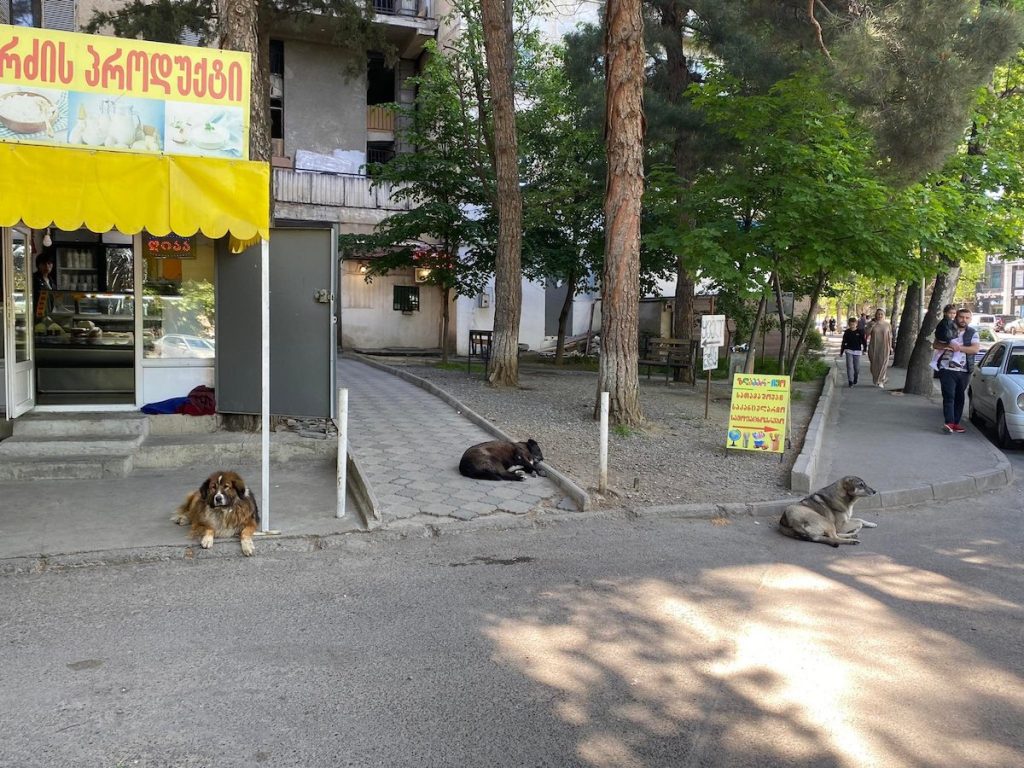
No one knows exactly how many dogs live on the streets of Georgia. The last time they were recalculated was in 2015. But it is obvious that the number of dogs is huge.
In fact, there is not a single street, yard or quarter in Tbilisi where at least one abandoned dog does not live. At the entrances to cafes and restaurants, it is also common to meet dogs that feed on discarded food in the same places.
Stray dogs in Georgia
Tourists and foreign guests in Georgia often comment on forums that they have never seen so many stray dogs anywhere.
Experts say that the state has been unable to build a normal system of sterilization of animals left on the street for years.
In 2022 alone, about 10,000 animals were sterilized in Tbilisi, Giorgi Kobiashvili, director of the Animal Monitoring Agency of the Tbilisi City Hall, told JAMnews.
Males are castrated and females are spayed. Sterilization is a more complex procedure. Here, unlike castration, it is necessary to cut the abdominal cavity. After the operation, the animal needs several days of rehabilitation under the supervision of specialists. There are few centers in Tbilisi where the animal will be helped with this, fewer in the regions. And this significantly slows down the sterilization process as a whole.
After sterilization, the animal must be monitored for several days, and often, to avoid postoperative complications, it is necessary to administer antibiotics for several days, veterinarian David Nanobashvili says.
Stray dogs in Georgia
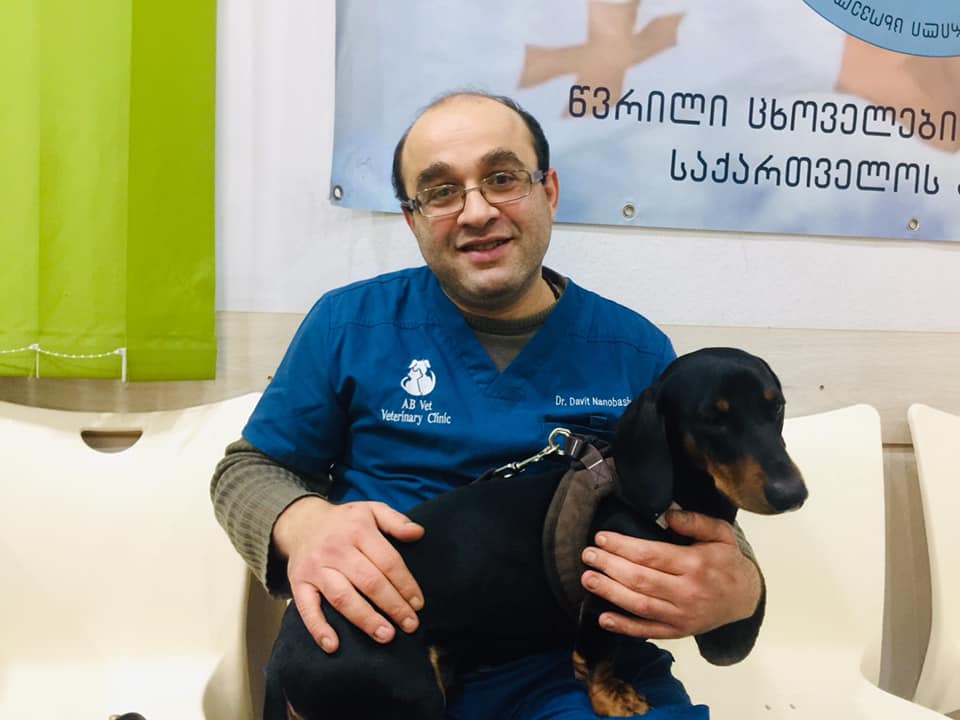
Veterinarian David Nanobashvili. Photo: personal archive
Stray dogs in Georgia
“We also pre-test dogs that have owners. Based on the results of the tests, an operation is planned and decisions about medicines are made. In the case of homeless animals, tests are not done. We often don’t even know if it is infected with a chronic disease or not,” Nanobashvili says.
After the operation the dogs remain in the municipal shelter, then return to the same place where they were taken from.
The situation in Tbilisi is relatively simple, but in some regions there are no veterinary clinics at all, for example in the regions of Racha-Lechkhumi and Kvemo Svaneti.
If a dog living on the street has a handler who takes care of him, then he is more fortunate — he will help during the postoperative period.
“Any citizen can register a street animal, call us, take a dog or cat for sterilization and vaccination. When we return it, we already have the animal’s litter number in our database, as well as the curator’s name. Volunteers help the animal observation agency a lot, for example, if a dog has bitten someone, we inform the curator or they inform us,” Giorgi Kobiashvili says.
Owner Lyuba Rekhviashvili now has ten dogs and three cats. In addition, she takes care of the animals that roam near her house.
Lyuba has been looking after stray dogs for many years. She says that the role of curator is very important for the humane solution of the problem of homeless animals, so this “institution” needs to be strengthened. A
Lyuba has repeatedly changed her place of residence; because of the animals she faces resentment and aggression from her neighbors.
“Wherever I go, new dogs find me. I’ve spayed most of them myself so they don’t breed. I needed the help of the mayor’s office only in the case of stray dogs. I feed them. People don’t like it, sometimes they behave aggressively. In their opinion, there are so many dogs divorced because I lure them with my care. In fact, this is due to the fact that they themselves do nothing and do not solve this problem in any way,” Lyuba says.
Stray dogs in Georgia
The most important thing is the involvement of citizens in solving the problem, David Nanobashvili says.
“Eight stray dogs live near my house. Residents were able to vaccinate them on their own. If others also take responsibility and graft the animals, it will be good. If the whole house collects five to ten lari [about $2-4] and sterilizes one animal, then it will not pose a danger to residents, it will not multiply. And we will not get plus 10-15 dogs in two years. And you can’t just go to the state. Believe me, the state does not have the financial resources to take over everything.”
Castration or sterilization of stray animals is free of charge when the owner contacts the animal welfare agency. For pets that have owners, castration costs 60 lari [about $24], and sterilization costs 80 lari [about $30].
Tbilisi City Hall’s animal welfare agency has launched a campaign: the owner brings the animal to the municipal shelter and pays only a registration fee of 19 lari [about $7], while the sterilization or castration operation will be free of charge, Kobiashvili says.
In addition to the animal control agency, residents of Tbilisi can contact Mayhew Georgia. There sterilization-castration is carried out free of charge, as well as vaccinations against rabies and infectious diseases for homeless animals.
Luba Rekhviashvili says that, in addition to the sterilization / castration procedure, dogs must be registered.
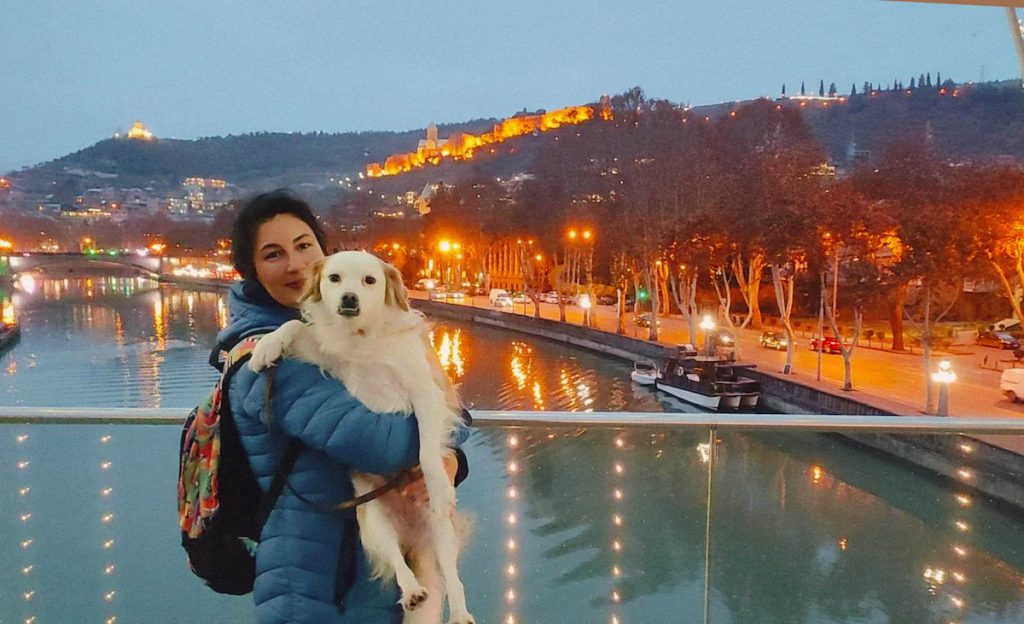
“I would start by registering pets,” Luba says, and explains why:
“Often on the street there are puppies that are born by the owner’s dogs. The owners of the babies are discarded. That’s where these dogs come from, they don’t fall from the sky. They are left in the markets, in other crowded places. Then they grow up and multiply.”
Tbilisi City Hall is now working on a new plan and ways to solve this problem, Giorgi Kobiashvili says. It is planned that all animals left on the streets of the capital must be registered by August.
New legislation
In addition, a draft law “On Pets” is being prepared, on which the Parliamentary Committee on Environmental Protection is currently working on with animal rights activists.
If approved, it would be the first law to address this problem.
Until now the rules for keeping pets and controlling their population were approved individually for all municipalities and included only general provisions.
According to the working version of the bill “On Pets”, a single registration base will be created, and the responsibility of pet owners in this regard will increase.
For example, within one month of the birth of a pet or the beginning of actual ownership, the animal must be identified and registered. An annual control registration is also provided.
The owner of the animal will lso be obliged to immediately notify the veterinary clinic and the authorized body about disease or in the event the animal bites someone, and the victim will have to be compensated.
Registration involves microchipping — a chip the size of a grain of rice is placed under the animal’s skin, on which there is information for both the pet and the owner. Microchipping is still mandatory in Tbilisi and Batumi, and will now apply throughout Georgia.
Natia Chikovani, founder and head of the Animal Project organization, is participating in the work on the bill. She explains that microchipping will make it easier to control reproduction.
“The decision has not yet been made, but it is likely that the breeding of animals at home will be banned altogether. There will be no more cases when owners search through Facebook for a partner for their dog. The animal will have a special document from the veterinarian stating that it is healthy. Genetic and/or chronic diseases will be listed there. Also, owners will have to obtain permission from a kennel club or an institution responsible for breeding a particular breed,” Chikovani says.
According to the working version of the bill, neutering of animals that are not subject to reproduction will be mandatory.
The document does not say anything about this yet, but Chikovani reports that the breeding of certain breeds of dogs – huskies and malamutes – may be banned for fifteen years. The climate of Georgia is not suitable, and it is difficult for the owners to take care of them, so these dogs end up on the street.
Breeding pit bulls may be banned altogether, as has been done in many Western countries.
“This does not mean that we have to kill pit bulls or take them away from their owners – they just need to be sterilized.”
Some view the clause that “dog walking will be allowed only in compliance with safety standards – using a muzzle and a high-quality strong leash. The current fine for this violation of 20 lari [about $8] is increased to 150 lari [about $60]” as controversial.
According to the working version of the document, a muzzle is not needed for decorative dogs, such as Chihuahuas or Yorkshire Terriers, as well as those large dogs that, according to the characteristics of the breed, do not exhibit excessive aggression, such as Labradors.
There are breeds of dogs with increased aggressiveness – Rottweiler, Cane Corso, Doberman, German Shepherd, Caucasian Shepherd, Bulldog, Staffordshire Bull Terrier.
If the owner of a large dog takes him out on a short leash, he will be able to walk with him without a muzzle. A muzzle will only be needed when walking on a long leash.
Both a short leash and a muzzle will be required when traveling with a dog around the city and outside the city on public transport, unless the animal is placed in a special carrier.
The owner will be required to carry the animal’s veterinary passport during the walk.
So far the document does not say anything about where the dog can be released, as many breeds of dogs need free movement, Chikovani says.
“If this law is not immediately followed by the creation of special places equipped according to international standards in each park where you can let your dog off the leash, this law will not work. Many dogs will not be able to exist normally if they do not expend energy by running freely.”
- “All street animals throughout Georgia will be counted.
- 70 percent of these animals will be castrated/neutered as soon as possible.
- Uncontrolled breeding and burial of animals will be reduced.
- The state will start an active social campaign, including certain subsidies to encourage the adoption of animals from the street, and in five years the number of homeless animals will be significantly reduced.”
Work on the bill continues. The Committee for Environmental Protection plans to register it with Parliament in June 2023.
Stray dogs in Georgia










